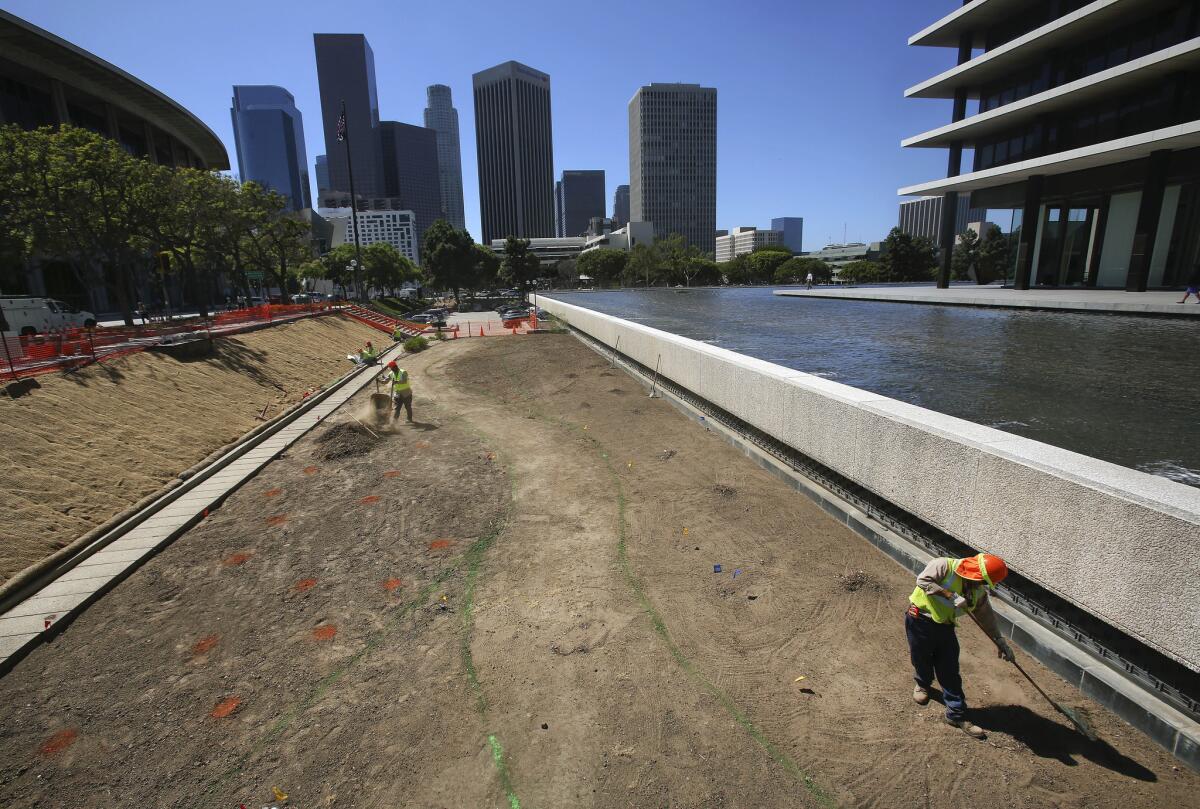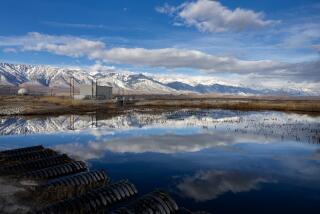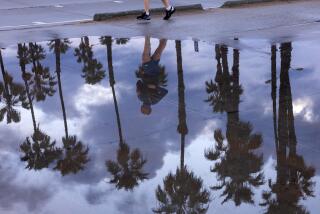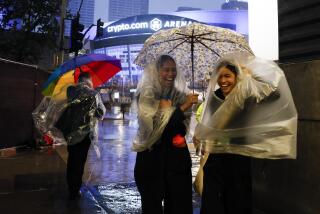Downtown L.A.’s five-year rain total is lowest ever recorded

Los Angeles has chalked up yet another dreary milestone in its growing almanac of drought.
On Wednesday, experts at the National Weather Service confirmed that the last five years have been the driest ever documented in downtown L.A. since official record keeping began almost 140 years ago.
Having missed out on most of El Niño’s bountiful rains this winter, the Southland experienced yet another dreadfully below-average year of precipitation between July 1 and June 30.
As a result, downtown Los Angeles recorded an average of just 7.75 inches of rain every year since July 2011, according to NWS meteorologist Scott Sukup. That’s a total five-year rainfall of just 38.79 inches – roughly half of the amount of rain that would soak L.A. in a normal five-year period, experts say.
See the most-read stories in Local News this hour »
The next driest five-year run was from 1958 to 1963, when rainfall averaged just over 9 inches.
News of L.A.’s record low precipitation comes as the State Water Resources Control Board announced a 28% drop in residential water use for May, compared with the same month in 2013.
“The phenomenal ongoing water conservation by state residents as we enter the hottest summer months clearly shows Californians understand we remain in stubborn drought conditions statewide and that saving water is just the smart thing to do,” Water Board Chairwoman Felicia Marcus said Wednesday.
Despite near average rainfall in much of Northern California this last winter, 60% of the state remains in severe or extreme drought, the board said.
Although the weather service just recently began counting Southern California’s rain year from Oct. 1 to Sept. 30 in 2015, it traditionally measured rainfall from July 1 to June 30 to match up with region’s seasons.
It rarely rains in Southern California between July and October, the weather service said, so local meteorologists measured rainfall from July 1 to June 30 instead. But even by the newly adopted rain year benchmark, Oct. 1 downtown will still likely see the driest five years ever recorded.
The driest of those five years – based on the traditional July 1-June 30 measurements -- was 2012 to 2013 when only 5.85 inches of rain fell downtown, Sukup said. Average rainfall for downtown L.A., based on a 30-year average between 1981 and 2010, is 14.76 inches, Sukup said.
Downtown’s parched landscape mirrors the broader, historic drought that has wreaked havoc on California this decade. Forests and hillsides across the state are parched, brittle and burning.
Nearly 3,000 firefighters are battling wildfires that have scorched more than 50,000 acres since June.
But in Northern California, a series of winter storms, or “atmospheric rivers,” dumped feet of snow and inches of rain, replenishing reservoirs and building up the Sierra snowpack for a spring and summer melt.
California may come to depend more on those “atmospheric rivers” in the future for its water and downtown Los Angeles and the surrounding cities may continue to miss out on them, said Michael Anderson, a climatologist with the Department of Water Resources.
“The challenging part is how it translates into a representation of the future climate. Is that the future norm or the extreme? That’s really tricky to say,” Anderson said.
But until that’s answered, Angelenos can expect more rainless days thanks to a developing La Niña, which brings a drier-than-average winter.
“We’re still trying to figure out if this is a window into our future,” Anderson said.
For breaking California news, follow @JosephSerna on Twitter.
MORE LOCAL NEWS
San Diego police release video of suspect in killings of homeless men
4-year-old boy killed, man injured in drive-by shooting in Altadena
No Mega Millions winner means lottery jackpot soars to $508 million
More to Read
Sign up for Essential California
The most important California stories and recommendations in your inbox every morning.
You may occasionally receive promotional content from the Los Angeles Times.











